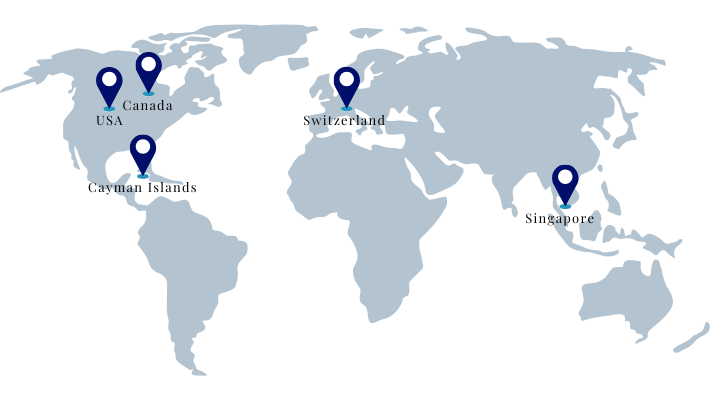The main threat to investors is often their governments. This report makes a compelling case for international investment diversification, especially with precious metals.
In OECD countries, governments claim roughly half of annual GDP through taxes, fees, and inflation. Weak fiscal and monetary policies since the 2007-2008 financial crisis reveal systemic issues in the Western financial system.
Global regulatory bodies, like the Bank for International Settlements, warn of a major financial crisis, potentially worse than 2007-2008. The recent Cyprus "test case" of asset seizures and the trend away from physical currency are concerns.
Political instability is on the rise, especially in the United States, which has adopted surveillance and controversial tactics. The U.S., with troops in 100+ countries, is accumulating adversaries, raising fears of "blowback."
Gold investors face the risk of governments expropriating their holdings under "national emergencies," as seen in the 1930s. Savvy investors seek ways to hedge against these threats, with precious metals a trusted choice. In a volatile financial and political landscape, investors need to be adaptable and innovative. A popular strategy is diversifying with precious metals like gold, silver, and platinum stored outside traditional banks and one's home jurisdiction. This paper explores the appeal of countries like Switzerland, Canada, the United States, Singapore, and the Cayman Islands.

Storing Precious Metals Abroad: A Diversification Strategy
Diversifying and safeguarding precious metal assets often involves holding a portion of them outside your home country. In this paper, tailored for Canadian and US investors, we explore popular destinations for storing gold, silver, and platinum. Our assessment criteria include:
- Track Record in Asset and Privacy Protection: Examining the country's history in safeguarding investors' assets and privacy.
- Economic, Political, and Military Stability: Evaluating the stability of the country in economic, political, and military terms.
- Financial Interest in Investor Protection: Highlighting the importance of countries with thriving international financial and investment industries that are less inclined to make arbitrary asset seizures.
When Searching for a Bullion Storage...
- Most investors prefer keeping a portion of their physical holdings nearby, typically in their home country.
- Both Canada and the United States are considered "safe havens," making them attractive for storing external precious metals. We'll explore the merits of each as primary and secondary storage options.
- Concerns about growing tail risks in the US and global financial system, along with the erosion of bank deposit protection and privacy rights due to legal compliance changes, make foreign storage outside the banking system a focus of this paper.
Ideally, your gold, silver, and platinum holdings should be insured and stored securely by trusted providers like Brinks, IDS, SWP, and Loomis. This ensures that in cases of provider takeover, bankruptcy, or restructuring, your assets remain inaccessible to creditors. Additionally, your holdings should be stored in facilities subject to regular annual audits, with the option for users to have direct access if desired.
Switzerland: A Trusted Hub for Precious Metals Storage

Switzerland, a top-ranked destination on the Tax Justice Network's Financial Secrecy Index in 2015, has a strong history of safeguarding assets, particularly gold. With over 1,000 tons of gold reserves and responsible for refining 70% of the world's gold, Switzerland has a significant stake in the precious metals industry.
This nation's commitment to principles like direct governance, freedom, and property rights fosters a robust financial system. Swiss banks manage $6.5 trillion in assets, over half originating from abroad. The Swiss Franc remains a premier currency, and Switzerland maintains long-term political and economic stability, neutral status, and a war-free history since the early 1800s.
Despite adapting bank secrecy for US investors due to FATCA legislation, private gold storage remains unaffected. Companies like Sprott Money ensure privacy by allocating clients' Swiss holdings to numbered accounts, keeping lists and registers in Canada. This two-jurisdiction approach adds an extra layer of security.
Precious Metals Storage in Canada: A Premium Gold, Silver and Platinum Storage Destination

Canada has several attributes as an excellent place to store precious metals. That is particularly true for U.S. investors who worry that during a time of financial crisis that their government may draw on the precedent set by the Roosevelt Administration. With Executive Order 6102, signed in April 1933, the U.S. government criminalized possession of monetary gold holdings, and effectively nationalized existing stocks.
Canada, which did not echo these moves and shows little indication that it would need to do so in the future, thus ranks as a top locale for U.S. gold storage clients. Canada is widely regarded as one of the world’s most financially stable and peaceful countries, and has not been invaded for more than 200 years. While this paper rates the balance of probabilities favoring gold storage outside the banking system, it should be noted that the World Economic Forum consistently ranks Canadian banks as the world’s safest.
It’s true that the Canadian government did announce the sale of its gold foreign exchange reserves in 2016. However, the U.S. Geological Survey has estimated that Canada was the world’s fifth largest gold producer in 2015, with output nearing 150 tons, and that it had 2,000 tons of reserves in the ground.
Canada’s significant energy and other natural resources also suggest that it would be able to survive systemic disruptions better than many other countries. Canada also has many attractions as a business and tourism destination. This facilitates matters for Americans who want physical access to their gold, or who want to conduct personal audits of their holdings, as it enables them to combine these and other activities in a single visit.
United States Precious Metals Storage: A Great Reputation, but…

The United States is almost universally regarded by international investors as a premier safe haven during times of political and financial turmoil. The country’s military and economic strengths, strong record of rule of law, and its vast and liquid financial markets make it a prime destination. This is evidenced, as noted above, by the strength of the U.S. dollar during periods of uncertainty. Americans, who are among the world’s largest gold investors, thus naturally pride themselves on these strengths - possibly too much.
In fact, if there was one category of investors for whom holding gold outside the United States would be an excellent option, it would be for Americans themselves. That’s because while Americans – like most gold investors – have a strong incentive to keep a portion of their holdings where they can get quick access to them, many of the biggest risks they face are from their own government and financial system.
U.S. and international gold investment communities remain permanently scarred by Franklin Delano Roosevelt’s order of the seizure of gold belonging to US citizens, associations, and corporations (12 during the Great Depression). Investors were compensated at the rate of USD $20 per ounce. However, as gold was subsequently revalued at USD $35 per ounce, capital gains that they would ordinarily have earned on those holdings were effectively expropriated. In this regard, one of silver’s attractions is that the United States did not expropriate sliver during the Great Depression. Indeed, silver appears far more difficult than gold for governments to expropriate.
An important precedent regarding gold expropriation has thus been set. Many argue that as gold is no longer regarded as money, that such a seizure is unlikely. However, these are generally the same sort of analysts who either don’t read history or who ignore tail risks, which, as we discussed in the introduction, are increasing significantly.
In short, for international investors, holding precious metals in the United States remains a popular option which this paper acknowledges, with the caveats noted above. However U.S. investors who want solid, diversified long-term portfolio protection, need to consider international diversification as much as anyone else, if not more.
Precious Metals Storage in Singapore: Chinese Money and a U.S. Naval Base

The Republic of Singapore is increasingly emerging as one of the world’s top financial centers. In 2015, Singapore held nearly an eighth of the world’s total offshore wealth, including considerable Chinese holdings, according to the Boston Consulting Group. That’s particularly true of precious metals, which have strong popular appeal among the local population, which are a mix of ethnic Chinese, Malays, and Indians.
Singapore, which hosts a domestic precious metal exchange, has a high per capita GDP, effective rule of law, and is one of the world’s most important geopolitical trading hubs. The country is well protected by one of America’s most powerful naval bases, which guards passage through the Straits of Malacca, one of the world’s most important shipping lanes. Not surprisingly, storage facilities in Singapore have been growing in recent years and prices are competitive.
Gold and silver are viewed as commodities by the local government, which means there are no reporting requirements. The country ranked third on the Tax Justice Network’s Financial Secrecy Index in 2023. Recent legislation eliminated import duties and taxes on investment grade gold.
Cayman Islands: An Excellent Alternative For Precious Metals Storage

The Cayman Islands, which are a British overseas territory, are emerging as an excellent alternative locale to store offshore gold, particularly for U.S. investors, seeking alternatives to Canada, Switzerland and Singapore. They host several world-class precious metals storage facilities. There are no restrictions on gold shipments in and out of the country and no import tariffs or Value Added Taxes levied on them. Although the islands have significantly cleaned up their reputation as an overseas haven, they still rank fourteenth in the Tax Justice Network’s 2023 Financial Secrecy Index.
However, the Cayman Islands have a strong average per capita income, favorable tax regime and remain an excellent overseas financial center, particularly as a base for off-balance sheet financial transactions and hedge fund management. English is the first language and businesses welcome payment in U.S. dollars. Rule of law is strong in the Islands, as are democratic institutions, with government relatively close to the people. Another major advantage for U.S. gold investors lies in the Cayman Islands’ attractiveness as a tourist destination. This enables investors to, for example, visit on business, conduct a quick audit of their holdings, and to take a day off afterwards.
Other Storage Options
This discussion explores the international options for safeguarding precious metals, with a focus on the needs of American and Canadian investors. The list isn't exhaustive. There's a "second tier" of options with similar attributes that we omit due to brevity or superior alternatives. For instance:
- Hong Kong's business-friendly reputation competes with Singapore, but concerns about Chinese Government influence make it less attractive.
- Austria, a known precious metals storage locale, plays second fiddle to Switzerland due to stability and regulatory factors.
- Australia, while akin to Canada, ranks lower in 2023 due to specific considerations.
The paper’s authors, who are Canadian, must concede bias, with regards to Canada-Australia comparisons. Australia is ranked slightly behind Canada because Australia is in a geographically slightly less secure area than Canada). Canada also has a larger and more diversified economy, and yes, for North Americans, Canada would be a far more comfortable place to hold their precious metals because of proximity.
Key Takeaway: Diversify Precious Metals Holdings Internationally
In today's unpredictable political and economic landscape, safeguarding your investment should take precedence over maximizing returns. Diversifying your precious metals holdings outside your home country and the traditional financial system offers a compelling strategy.
For world-class global precious metals storage services, explore Sprott Money Bullion Storage, a private, non-bank storage in these locations: Canada, United States, Cayman Islands, Switzerland and Singapore. Please call us toll free at 1.888.861.0775 to learn more.
Don’t miss a golden opportunity.
Now that you’ve gained a deeper understanding about gold, it’s time to browse our selection of gold bars, coins, or exclusive Sprott Gold wafers.
About Sprott Money
Specializing in the sale of bullion, bullion storage and precious metals registered investments, there’s a reason Sprott Money is called “The Most Trusted Name in Precious Metals”.
Since 2008, our customers have trusted us to provide guidance, education, and superior customer service as we help build their holdings in precious metals—no matter the size of the portfolio. Chairman, Eric Sprott, and President, Larisa Sprott, are proud to head up one of the most well-known and reputable precious metal firms in North America. Learn more about Sprott Money.
Learn More
You Might Also Like:

















Looks like there are no comments yet.